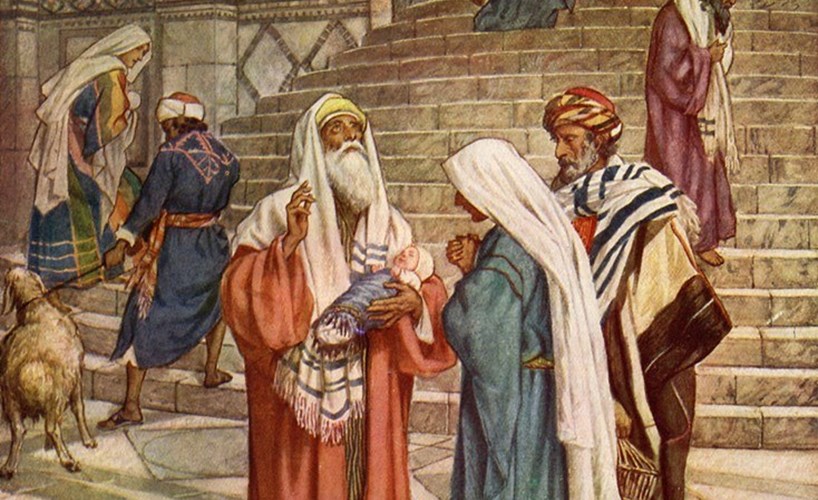
GOSPEL. Luke ii. 21. At that time: After eight days were accomplished that the child should be circumcised: his name was called Jesus, which was called by the angel before he was conceived in the womb.
Here we are, my dear young friends, at the beginning of a new year. When we look back on the days that have been vouchsafed to us, so full of graces and blessings, we feel that we ought to be filled with gratitude. But when we look at the past, we find that we have frequently done our work badly; that we have outraged God by our carelessness, coldness, and sinfulness. When we consider all this wasted and misspent time, we begin to feel some concern for the future.
How ungrateful we have been to God! Many of us have to bewail lost time, time spent in idleness, pastimes, recreations, and useless occupations; yes, even time spent in sin. Let us now correct all this; be sorry for the past and make firm resolutions for the future. As St. Paul tells us, "See how you walk circumspectly, not as unwise but as wise, redeeming the time." In order that you may be convinced of your great ingratitude to God's kindness, and that you may be determined to remedy the past days of the year, let us examine ourselves a little further. How have you spent all the days of your life? How much good might you have done, and yet have omitted it! How many prayers could you have said, but you were careless about them! How often could you have listened to a sermon and you did not make the effort! You could have frequented the sacraments of confession and communion, but your undevotion and coldness kept you away. How many charitable works could you have done! The opportunities for acts of kindness to others are so frequent, and so pleasing to almighty God and yet you did not perform them. Many and many a day we have lost in looking for recreation, and in performing mere human actions which have no merit attached to them. We read in the Book of Proverbs, "The way of the slothful is as a hedge of thorns."
How have you accomplished the little good you have done? You have said prayers, but in a distracted way and carelessly. You have been to church, but you never thought of the presence of God. You went to hear the word of God, but very little good did you derive from it. And then your sins: of how many have you been guilty? I hope you have not sullied your souls with awful, wicked crimes that make the soul of the youth like hell itself. Can you tell how often you have been disobedient to your superiors; the number of impudent answers given them; the curses, blasphemies against God, the bad example to your companions, those many willful thoughts against purity? Can you give an account of those wicked words by which you have taught sin to others? What a multitude of sins have you not committed! We read in St. Luke that a gardener had planted a fig-tree in his garden; one day he went to look at the plants and shrubs and trees with which his garden was stocked. He came to this tree, and saw that it bore no fruit; it was a healthy, green, luxuriant tree, and yet it bore no fruit; like a lazy, well fed, careless man who takes everything given to him, but makes no return. "Well," said the master, "just look at this tree; for the past three years I have come here and expected at least a little fruit; but there has never been any. Why does this tree take up good space uselessly? Cut it down, and throw it into the fire, and let us have done with it." But the servant said, "Ought you not to try this tree one year more? I will dig about it and cultivate it carefully; perhaps it will surprise us next year."
You, my dear young people, are trees planted by almighty God in the garden of His holy Catholic Church, that you may produce good fruit. Here is a three-year-old tree, and the farmer is tired of waiting. How old are you? You are old enough to have done something long ago. Instead of fruit you have produced thorns. St. Augustine says, "Up to the present I have lived my years badly; they are years lost to me; when I cast a glance on what I have done, my heart fails me, for I see nothing but sin, that cries out against me and rebukes me. My former years have been useless.''
All the creatures of the universe, ministers of divine justice, at the sight of your wickedness have been calling on God to be allowed to vindicate His outraged goodness and mercy by inflicting on you death or sickness. But again the goodness of Our Lord put it off. "Allow that tree to stand one year more." Yes, let him have another year; perhaps he will change his mode of life, will sin no more, but will be converted; will become a good tree and produce beautiful fruit. In the meanwhile, however, the good are injured to a certain extent by this delay; that bad tree ruins the good ones. A youth who neglects devotions, no longer goes to the sacraments, and gives scandal to others, gets into a habit of cursing and swearing, is a tree that produces such unwholesome fruit that other souls are brought to death; why should it not be cut down at once? Yes, the divine Justice says, that tree ought indeed to be cut down; but where there is life there is hope. Our Lord says He desires not the death of the sinner, but that he be converted from his ways and live. In the meantime years and months pass by; he continues at enmity with God; but the divine mercy never deserts him; it follows him always, is about him with heavenly inspirations and clear light, which makes him understand that interior voice which is sometimes amiable, sometimes severe: if amiable, it invites him to Our Lord's embrace and promises reward, consolation and peace; if, on the contrary, it is severe, it threatens punishment and death. His pleasures are turned into bitterness; his conscience gives him no rest, but fills him with a thousand fears; his memory constantly recalls the years of his childish happiness, when he went to church joyfully, and when he prayed to the Blessed Virgin. What joys did he not experience in his prayers! what consolation did he not find in going to holy communion! it was like the peace and happiness of paradise. Such were the means which the divine goodness used to gain the sinner to God, and perhaps all that time he was hard and obstinate in his sins. Perhaps this may even be your case. And if it is, will you not give over your obstinacy and practice Christian virtue? Go to your Father, your tender Friend, to the loving Jesus who has been waiting for you with such a love and who has stretched out His arms to you, to press you to His bosom. Should there be some among you who ought to think of doing better, they are foolish if they do not profit by the time which God has set for them; for that time will soon pass away and then will come the time of reckoning. "For time shall be no more." Oh, have a little sense, and use it for the purpose of your highest interest, the salvation of your soul. "Whilst we have time let us do good.'' "Blessed," says St. Philip Neri, " are ye young people that have a long time before you in which to do good." What great good you can do in your youth and strength; the old man has but a short time before him. Do not wait for the night when you cannot work. "The night cometh when no man can work."
St. Anthony says that if the damned had the time we throw away, and had another chance to live, they would become saints. If they could return to the earth, would they sleep and fool their time away? No; with the experience gathered in the other world they would work day and night, for they know the value of these occasions to gain merits. Thank divine providence that has watched over you with so great care; pray to the Holy Ghost that He may send into your soul that ray of light which will make known to you how important this opportunity of conversion is; that you may be inspired by Him with a strong will to persevere in good. With St. Augustine let us exclaim, "Too late, infinite goodness, too late have we begun to love Thee! infinite love of God, what did we love, when we did not love Thee? Too late have we known Thee and loved Thee, infinite loveliness of God! "
And you, my good young friends, for good I can consider the most of you to be, who constantly endeavor to conquer your bad inclinations and the temptations of the devil; rejoice on this day, for you have cause to be glad at the merits you have gained and which have been laid up for you in heaven; continue to pray to the Holy Ghost that He may give you the grace of perseverance.
Source: Sermons for Children's Masses, Imprimatur 1900
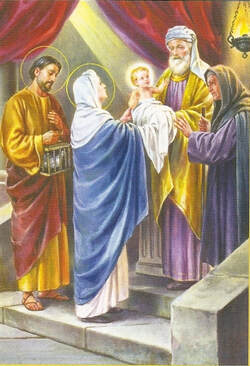
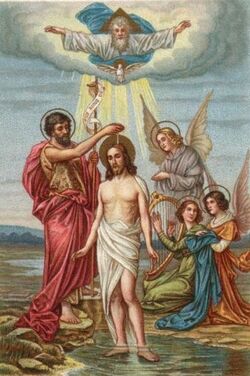
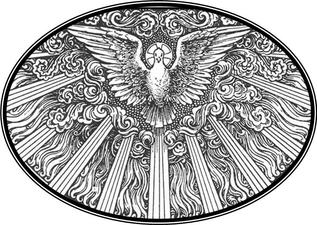
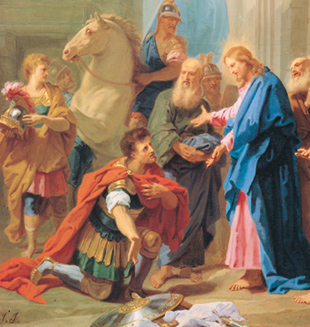

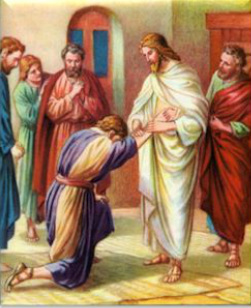
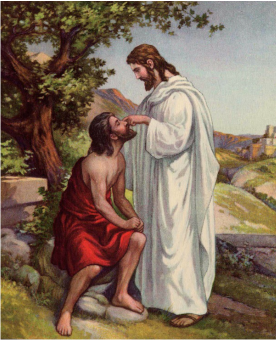
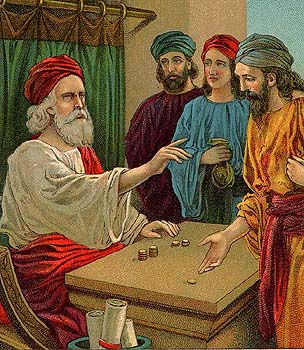
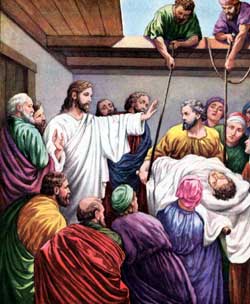
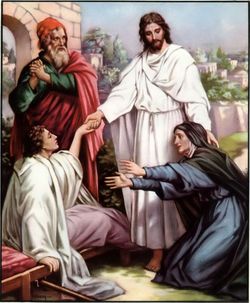
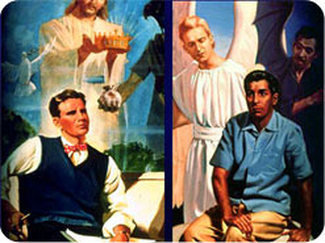
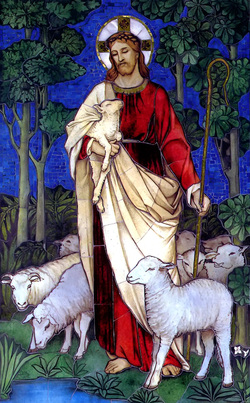


 RSS Feed
RSS Feed